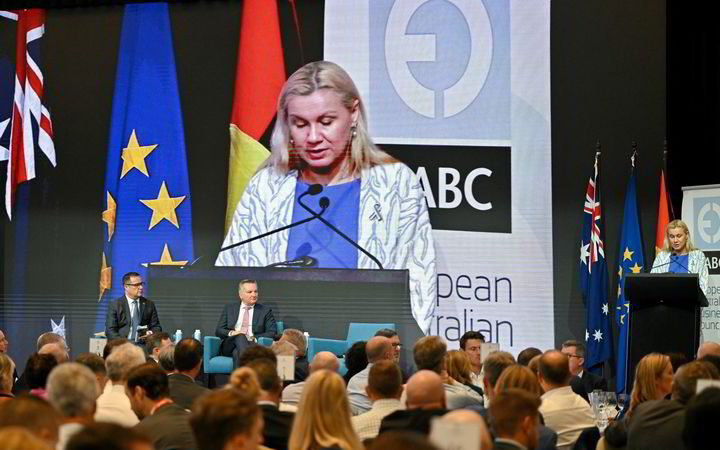Winners of first European Hydrogen Bank auction due to be announced in May, says EU energy commissioner

The results of the first European Hydrogen Bank (EHB) auction are due to be unveiled in May, according to EU energy commissioner Kadri Simson.
In a speech to the European Australian Business Council event in Sydney, Australia, yesterday she said: “The first-ever domestic auction for renewable hydrogen production under the new European Hydrogen Bank was opened last November.
“The first results can already be expected in May.”
Hydrogen Insight previously reported that the results had been expected in early April, with the first grant contracts to be signed within nine months.
In February, the European Commission revealed that the €800m ($867m) auction had received 132 bids for contracts guaranteeing fixed price premiums for each kilogram of renewable hydrogen produced.
The idea is that these subsidies would bridge the cost gap between green H2 (and its derivatives) and fossil-fuel-derived equivalents.
Article continues below the advert
Producers had to put forward bids for a fixed-price premium in a closed auction up to a ceiling of €4.50/kg, with the lowest eligible bids (weighted against a range of other criteria such as sustainability) picked first, continuing until the €800m budget is exhausted.
The fixed price, formalised with a grant contract, would last for ten years, on the condition that the scheme is commissioned within five years, meaning that the first green — ie, those that sign their contracts in February 2025 would need to commission their projects by November 2030.
Taken together, the 132 bids from projects in 17 different countries amounted to a total planned electrolyser capacity of 8.5GW, which would be nearly enough to cover 10% of the EU’s target of reaching ten million tonnes of annual renewable hydrogen production by 2030, the EC said, implying annual production capacity of close to one million tonnes per annum.
But the €800m budget of the EHB’s pilot auction is extremely unlikely to sustain fixed-price premiums for even a double-digit fraction of this capacity.
In fact, if all bids accepted were granted a fixed price premium of €4/kg (slightly below the bid ceiling of €4.50/kg), this would be enough to support around 250MW of capacity, according to Maren Preuss, policy expert at German electrolyser maker Sunfire — around 3% of the total 8.5GW bid for.
This is likely to mean that more commercially robust projects able to bid for much smaller fixed price premiums will have gobbled up much of the budget.
Even if the entire €800m budget was settled for bids for €0.50/kg, it would only be enough to finance 2GW of capacity — less than a quarter of that bid in.
A second European Hydrogen Bank auction, worth €2.2bn, which had initially been due to be held this spring, is now set for launch this autumn.
Simson added in yesterday’s speech that the EU’s Innovation Fund — which is providing the money for the auction — is also supporting hydrogen projects through its regular grants programme, “providing around €2.3bn in grants for 35 different projects”.





